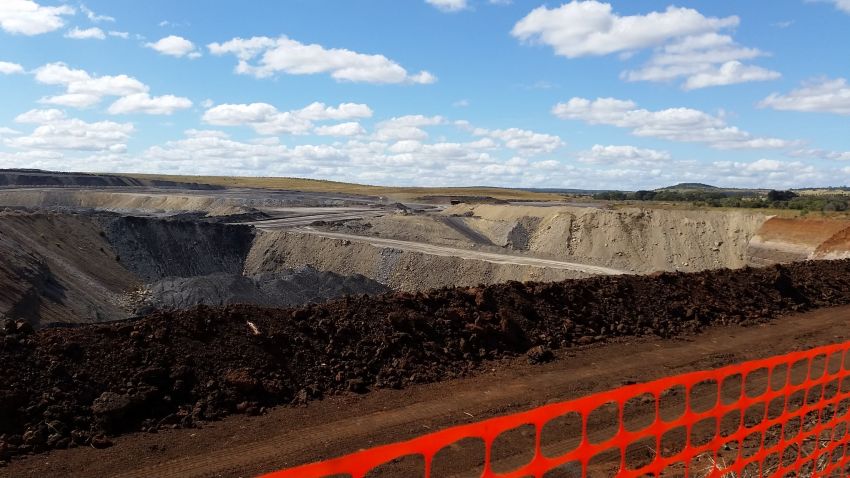
Almost three years after a community group began a campaign to oppose New Hope’s plans to expand its New Acland Coal (NAC) mine in the Darling Downs, the Queensland Land Court re-heard the case for the mine on October 2-4.
The Oakey Coal Action Alliance (OCAA), involving more than 60 farmers and residents, rejects the Stage 3 extension and wants a plan for workers to be able to find jobs in the renewable sector. It has proposed an alternative, the Acland Sustainable Energy Plan, which states that “there are far more sustainable options for the future of the fertile Acland, Oakey and Jondaryan region than coal mining”.
OCAA’s Acland energy plan is “a pathway to a sustainable land management plan” with a focus on “maintaining the soils and food production potential that this region offers”. It also offers farmers “a more stable income by diversifying food production with solar electricity production”.
“This model of development could be implemented across Australia”, OCAA said. “It is far more sustainable economically, socially and environmentally than the current approach that has been termed ‘quarry vision’.”
Despite many setbacks, New Hope has not given up on its mine expansion.
In May 2017, the Queensland Land Court recommended the Stage 3 expansion be rejected outright after the most intense factual scrutiny ever applied by the court to a mining project. The case began in March 2016 and ran for seven months. It was re-opened in April 2017 at New Hope’s request to submit further groundwater evidence.
Mining applicant New Acland Coal appealed the court’s decision and applied to the Queensland Supreme Court for a review. On May 28, the court decided to refer the matter back to the Queensland Land Court for further, limited, consideration.
On May 30, OCAA appealed the Supreme Court decision: the hearing in the Queensland Court of Appeal will take place in February 2019.
The Land Court has reserved its decision on this latest hearing, pending the Court of Appeal’s decision.
If Acland Stage 3 was prevented from proceeding, the existing mine would be exhausted by 2020.
In November 2016, energy minister Anthony Lynham stated: “The Land Court process is a rigorous process that I thoroughly respect”.
However, he did not respect the process sufficiently to act on the Land Court’s recommendation to reject Acland Stage 3. Instead, he used the fact that the decision was subject to appeal to not make a decision.
The Queensland government says it supports transitioning to 50% renewable energy by 2025. But this would require a dramatic shift from fossil fuels, which currently make up 92% of its energy mix. Just 8% is supplied by renewables.
Lynham said the state will reach 20% renewables by 2020, with large-scale renewable capacity set to double over the next 12 months. The state has to move from 8 to 50% renewable energy in just under 12 years to achieve its target.